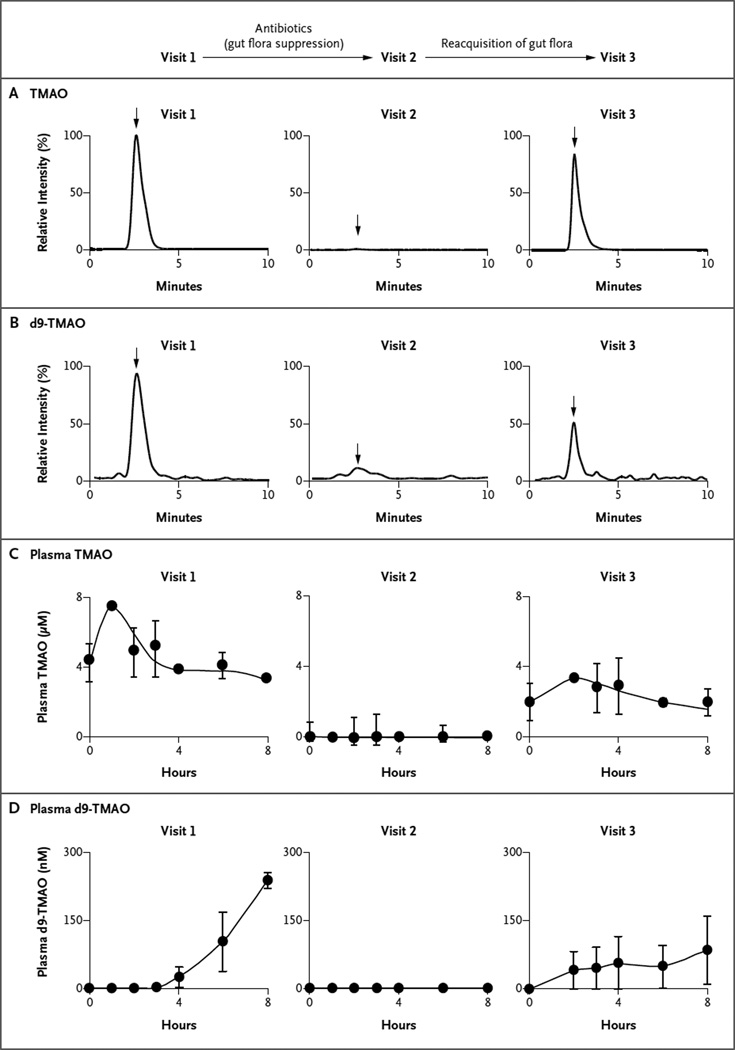Figure 1. Effects of a Phosphatidylcholine Challenge and Administration of Antibiotics on Mean Levels of Trimethylamine-N-Oxide (TMAO) and Its d9 Isotopologue (d9-TMAO).
All 40 study participants underwent the first dietary phosphatidylcholine challenge (visit 1), which consisted of the ingestion of deuterium-labeled phosphatidylcholine (d9-phosphatidylcholine) and two hard-boiled eggs. Six participants then received broad-spectrum antibiotics for 1 week, followed by a second phosphatidylcholine challenge (visit 2). These same participants returned again at least 1 month after discontinuing the antibiotics for a third challenge (visit 3). Shown are the results of assays for TMAO (Panel A) and d9-TMAO (Panel B) after the phosphatidylcholine challenge, before and after the administration of antibiotics, with the intensity of stable-isotope-dilution assays measured by means of high-performance liquid chromatography with online electro-spray ionization tandem mass spectrometry. The arrows indicate retention time where authentic isotope-labeled TMAO standards elute. Also shown are the plasma levels of TMAO (Panel C) and d9-TMAO (Panel D) at each visit. The plasma levels of TMAO were markedly suppressed after the administration of antibiotics and subsequently reappeared after the cessation of antibiotics, indicating that the production of TMAO from dietary phosphatidylcholine is dependent on metabolism by the intestinal microbiota.

